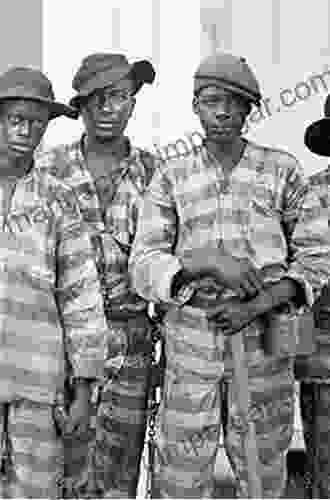Abductive Analysis: Theorizing Qualitative Research—A Comprehensive Guide

Unveiling the Power of Abductive Reasoning
In the realm of qualitative research, the quest for theoretical understanding often demands innovative approaches. Abductive Analysis emerges as a transformative method, empowering researchers with the ability to theorize data and generate novel insights. This comprehensive guide delves into the intricacies of Abductive Analysis, guiding you through its conceptual foundations, practical applications, and the profound impact it can have on your research endeavors.
4.3 out of 5
| Language | : | English |
| File size | : | 1772 KB |
| Text-to-Speech | : | Enabled |
| Screen Reader | : | Supported |
| Enhanced typesetting | : | Enabled |
| Word Wise | : | Enabled |
| Print length | : | 180 pages |
| Lending | : | Enabled |
Conceptual Underpinnings of Abductive Analysis
Abductive Analysis is rooted in the philosophical notion of abduction, a form of logical reasoning that infers the most likely explanation for a given observation. In the context of qualitative research, abduction serves as a powerful tool for generating theories and hypotheses that are grounded in empirical data.
Unlike deductive reasoning, which tests hypotheses derived from existing theories, and inductive reasoning, which generalizes from specific observations, abductive reasoning allows researchers to move iteratively between data and theory. This dynamic interplay enables the emergence of new theoretical frameworks that are both informed by and contribute to the empirical findings.
The Abductive Research Process
The Abductive Analysis process typically involves several distinct phases:
* Data Immersion: Researchers immerse themselves in the raw data, carefully examining and interpreting its content. * Pattern Identification: They identify recurring patterns, themes, and relationships within the data, forming the basis for initial hypotheses or theoretical insights. * Hypothesis Generation: Researchers develop tentative hypotheses or theoretical frameworks that explain the observed patterns. * Theory Refinement: Hypotheses are tested against new data and refined iteratively through a continuous process of feedback and adjustment. * Theory Validation: The resulting theory is evaluated for its coherence, explanatory power, and potential for further research and application.
Key Features of Abductive Analysis
* Focus on Theory Development: Abductive Analysis places primary emphasis on the generation and refinement of theory from qualitative data. * Iterative Nature: The process is highly iterative, involving a dynamic interplay between data analysis and theoretical development. * Groundedness in Data: Theories and hypotheses are始终 grounded in empirical observations, ensuring their relevance and credibility. * Openness to New Ideas: Abductive Analysis encourages researchers to remain open to new and unexpected theoretical insights that emerge from the data. * Contextual Sensitivity: It recognizes the importance of context in theory development and acknowledges the situated nature of qualitative findings.
Applications of Abductive Analysis
Abductive Analysis has proven to be a valuable tool for researchers across a wide range of disciplines, including:
* Social Sciences: Sociology, Psychology, Education, Anthropology * Humanities: History, Literature, Linguistics, Cultural Studies * Health Sciences: Nursing, Medicine, Public Health * Management and Business: Organizational Studies, Marketing, Innovation
Benefits of Abductive Analysis
* Enhanced Theoretical Understanding: Abductive Analysis empowers researchers to develop rich and nuanced theoretical frameworks that capture the complexities of qualitative data. * Increased Research Validity: Theories grounded in data are more likely to be valid and reliable, contributing to the credibility of research findings. * Novel Insights and Discoveries: Abductive reasoning allows researchers to go beyond existing theories and generate new knowledge that was previously unknown. * Methodological Flexibility: It can be applied to a diverse range of qualitative research methods, including interviews, observations, and document analysis. * Transferability to Different Contexts: Theories developed through Abductive Analysis often have the potential to be applied to different settings and contexts.
Abductive Analysis is a transformative method for theorizing qualitative research. Its ability to generate novel insights, enhance theoretical understanding, and increase research validity makes it an indispensable tool for researchers seeking to produce rigorous and meaningful research. By embracing the principles and practices of Abductive Analysis, you can unlock the full potential of your qualitative data and make significant contributions to your field of study.
4.3 out of 5
| Language | : | English |
| File size | : | 1772 KB |
| Text-to-Speech | : | Enabled |
| Screen Reader | : | Supported |
| Enhanced typesetting | : | Enabled |
| Word Wise | : | Enabled |
| Print length | : | 180 pages |
| Lending | : | Enabled |
Do you want to contribute by writing guest posts on this blog?
Please contact us and send us a resume of previous articles that you have written.
 Book
Book Novel
Novel Page
Page Chapter
Chapter Text
Text Story
Story Genre
Genre Reader
Reader Library
Library Paperback
Paperback E-book
E-book Magazine
Magazine Newspaper
Newspaper Paragraph
Paragraph Sentence
Sentence Bookmark
Bookmark Shelf
Shelf Glossary
Glossary Bibliography
Bibliography Foreword
Foreword Preface
Preface Synopsis
Synopsis Annotation
Annotation Footnote
Footnote Manuscript
Manuscript Scroll
Scroll Codex
Codex Tome
Tome Bestseller
Bestseller Classics
Classics Library card
Library card Narrative
Narrative Biography
Biography Autobiography
Autobiography Memoir
Memoir Reference
Reference Encyclopedia
Encyclopedia Neil Gaiman
Neil Gaiman Chuck Chan
Chuck Chan Chris Darbonne
Chris Darbonne Jim Bell
Jim Bell Chet Nicholson
Chet Nicholson Neel Mukherjee
Neel Mukherjee Patricia O Quinn
Patricia O Quinn Orunmila S Servant
Orunmila S Servant Elliott Sober
Elliott Sober Dean Olsher
Dean Olsher Chow Yang Lee
Chow Yang Lee Cherry Adair
Cherry Adair Christopher Catherwood
Christopher Catherwood Michael Livingston
Michael Livingston Thom Goddard
Thom Goddard Chris White
Chris White Christian Joppke
Christian Joppke Thomas Antonsen
Thomas Antonsen Ralph R Frerichs
Ralph R Frerichs Linda Nguyen
Linda Nguyen
Light bulbAdvertise smarter! Our strategic ad space ensures maximum exposure. Reserve your spot today!

 Samuel Taylor ColeridgeEmbark on an Uplifting Journey: Discover Hope and Inspiration in Every Page...
Samuel Taylor ColeridgeEmbark on an Uplifting Journey: Discover Hope and Inspiration in Every Page...
 Bernard PowellPost-Reconstruction Politics and Racial Justice in Western Kansas: Race and...
Bernard PowellPost-Reconstruction Politics and Racial Justice in Western Kansas: Race and...
 Brennan BlairEvidence-Based Practice of Cognitive Behavioral Therapy: Empower Yourself...
Brennan BlairEvidence-Based Practice of Cognitive Behavioral Therapy: Empower Yourself... Dan BrownFollow ·2.9k
Dan BrownFollow ·2.9k Virginia WoolfFollow ·10.4k
Virginia WoolfFollow ·10.4k Fredrick CoxFollow ·4.3k
Fredrick CoxFollow ·4.3k Rex HayesFollow ·13.3k
Rex HayesFollow ·13.3k Foster HayesFollow ·3k
Foster HayesFollow ·3k Ismael HayesFollow ·3.8k
Ismael HayesFollow ·3.8k Herman MelvilleFollow ·7.4k
Herman MelvilleFollow ·7.4k Michael CrichtonFollow ·9.2k
Michael CrichtonFollow ·9.2k

 E.E. Cummings
E.E. CummingsOne Man's Story of What It Meant to be Pj
In the tapestry of life,...

 Caleb Long
Caleb LongPattern Theory in Video Keno: Unveiling the Art of...
Embark on an enlightening journey into the...

 Douglas Adams
Douglas AdamsUnveiling the Diplomatic Landscape: The Ottoman Empire,...
Delving into the History...

 Terry Bell
Terry BellThere Still Is No Off Season: Embracing Year-Round...
In a world consumed by routine and the allure...

 Ibrahim Blair
Ibrahim BlairBrain Teasers Games and Puzzles: Exercise Your Mind with...
Prepare to embark on a captivating journey...
4.3 out of 5
| Language | : | English |
| File size | : | 1772 KB |
| Text-to-Speech | : | Enabled |
| Screen Reader | : | Supported |
| Enhanced typesetting | : | Enabled |
| Word Wise | : | Enabled |
| Print length | : | 180 pages |
| Lending | : | Enabled |








